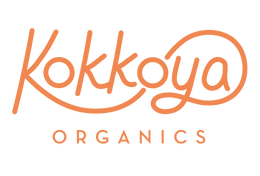Zero Waste Living Guide Yangon
by Sophia
Waste is a big problem everywhere in the world where there are traces of “modern human civilization”. Recently I joined a panel discussion on reducing our waste with Doh Eain, Recyglo, Bokashi and Thant Myanmar. Following this panel I have written down some tips that you as a Yangonite can do to help:
1. Observe your trash
How can we produce less trash? Well, I suggest we all take a closer look at what we are throwing out every day. Once you understand what your trash is then you can start thinking of ways to reduce it.
Check all aspects of your daily routine and think of waste-free alternatives: do I really need that daily cup of morning take-away coffee? Can I take it in a reusable cup? Food waste? Make your own garden compost or sign up for our food waste loop kit! Single-use plastic bottles? Start using a reusable water bottle!
Kokkoya Organics did a Waste Audit with some of our CSA members back in March (you can see the results here), we have materials such as the waste counter and trash guide available if you would like to conduct a waste audit at home or office.
2. Say NO to plastic & bring reusables
Say NO to single-use plastic around you! For foreigners living in Yangon, I strongly encourage you to learn the Burmese words for ‘No plastic straws’ (Plastic pipe ma-lo buu) and ‘No plastic bags’ (Plastic aate ma-lo buu) or just simply say that firmly in English every time a friendly local is trying to give you one.
One of my first switches towards a more waste-conscious lifestyle was to bring my own water bottle to refill and take my own straw & cutlery while going out to eat. I also have a tote bag folded in my daily bag in case I need to do some unplanned shopping and avoid those single-use plastic carrying bags. If I know I am taking away food I will bring my tiffin carrier or tupperwares.
It is a little bit inconvenient at the beginning but once you get used to it takes very little effort to remember and becomes second nature.
Think of a happy sea turtle every time you refuse a plastic straw. :)
3. Separate your trash
You might not know it but Yangon actually has a very good recycling system in place. After your bag of trash is taken out of your sight, it is actually being searched through many times for valuable materials before it finally arrives at landfill. There are many rubbish pickers or ‘treasure hunters’ in the city making a living by picking out sellable materials from the rubbish piles.
You can do them a huge favour by separating the waste first before throwing it out. Remember once materials are contaminated (by food waste or hazardous waste) they are more difficult to be recycled.
Here’s how I do it - I have 3 bins in the house: 1 bokashi bin from Kokkoya’s food waste loop to keep my kitchen waste (as well as paper napkins, wooden cotton buds etc or anything decomposable), 1 carton box (or more) for all the recyclables (cans, plastic bottles, glass bottles, flatten cardboards & paper, electronic waste, clothes etc) and 1 bin for the un-recyclable waste (mostly thin plastic food wrappings and packaging).
Once you take out the wet waste and recyclables from your bin you’ll realize there is actually not much left.
4. Eat local and shop consciously
To reduce waste you have to be conscious of what you are consuming every day.
One of the best ways is to know what you are buying/eating/consuming is produced as local as possible.
Prepare your meals and make the most out of your food to avoid waste. Buy vegetables from the local market/ farmers market (if not from Kokkoya) here they come without the annoying plastic wrappings around them. Avoid imported food and over-packaged products that have larger carbon footprints. Think twice before buying something new or throwing out something old.
Ask yourselves questions: Can this be repaired? Do I really need this new dress that I will wear only once? Can I exchange or donate the things I no longer need? Are there other uses for this thing before I throw it out? Can somebody else use them? If I really need to buy something can I get one that can last a really long time? How much waste will I produce after my purchase of this item?
5. Influence others
It is very easy to get disheartened when you see the enormity of what we are facing. But as the Zero-waste blogger Anne Marie Bonneau says: “We don’t need a handful of people doing zero-waste perfectly. We need millions of people doing it imperfectly.”
We need to celebrate and encourage more the efforts made to reduce waste rather than condemning occasional failures which might backfire and cause people to refuse to change.
To get something done well you generally have 2 options: a) force others to obey your rules and b) persuade them to believe in your ideas. I totally agree that a top-down approach on waste management is really necessary and will have a large impact (i.e. governmental ban or fine on the single-use plastic; laws on waste managements… etc); but while we are still pushing for this to happen we, as ordinary citizens, also have the power to influence/ change the behaviors of the people around you.
Share the tips with your friends and family, ask questions to big corporates and service providers on their waste management schemes, or even better, if you are in a position that can influence other people, use it to promote and raise awareness. Your children will be thankful that you did.
